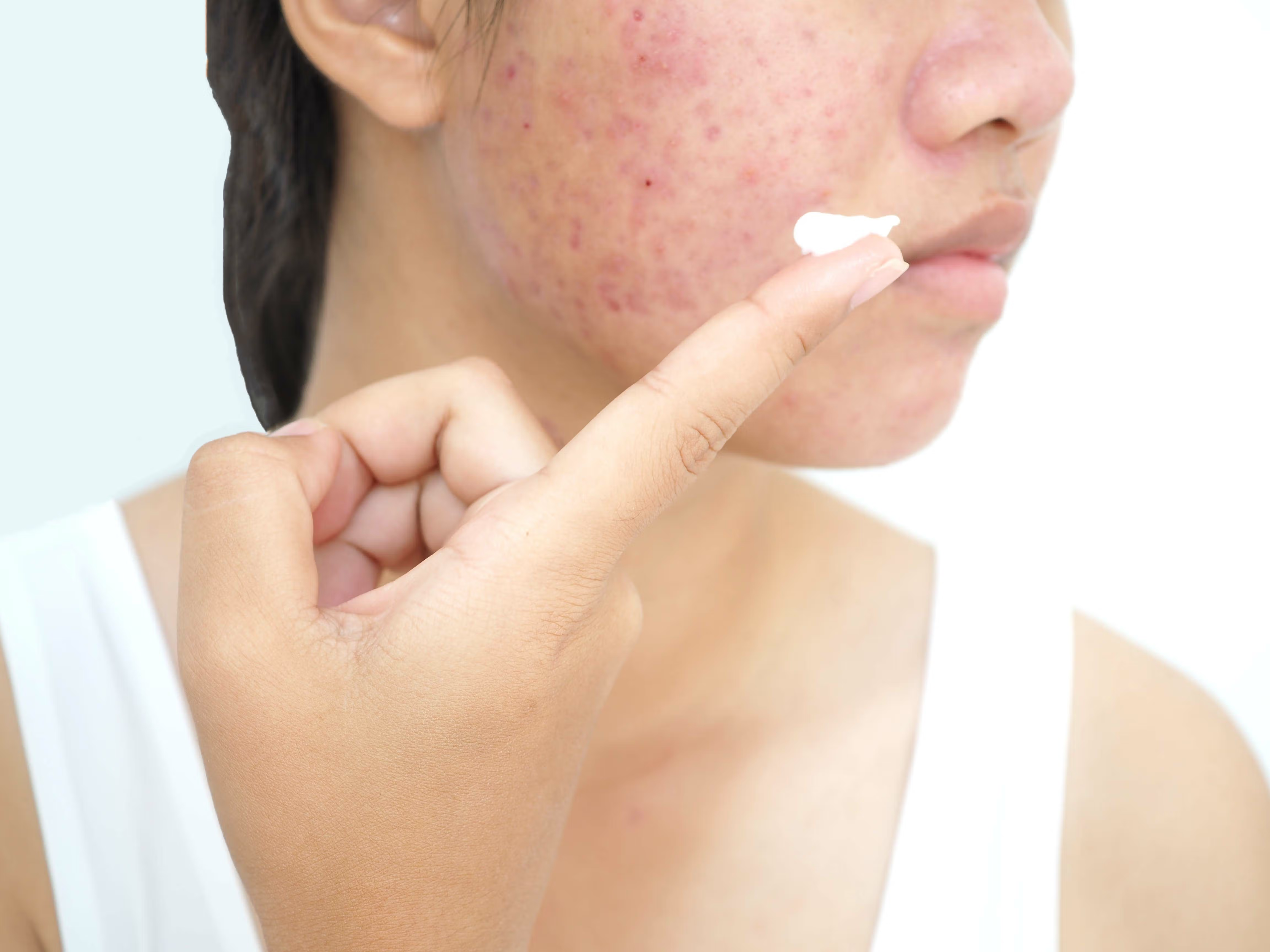- Case-Based Roundtable
- General Dermatology
- Eczema
- Chronic Hand Eczema
- Alopecia
- Aesthetics
- Vitiligo
- COVID-19
- Actinic Keratosis
- Precision Medicine and Biologics
- Rare Disease
- Wound Care
- Rosacea
- Psoriasis
- Psoriatic Arthritis
- Atopic Dermatitis
- Melasma
- NP and PA
- Skin Cancer
- Hidradenitis Suppurativa
- Drug Watch
- Pigmentary Disorders
- Acne
- Pediatric Dermatology
- Practice Management
- Prurigo Nodularis
- Buy-and-Bill
Video
Skin Barrier and Its Importance in Acne
Author(s):
Joshua Zeichner, MD, and Mona Gohara, MD, discuss the importance of the skin barrier and its importance in acne treatment.
Joshua Zeichner, MD: Let’s now talk about the skin barrier. It’s a hot topic in dermatology right now. Mona, give everybody a definition. What is the skin barrier?
Mona Gohara, MD: It’s the outermost layer of our skin that does 2 simple things, keeps irritants out and keeps water locked in.
Joshua Zeichner, MD: Perfect. Everybody out there may not associate acne as a condition associated with skin barrier dysfunction because people usually think about this with respect to eczema. But we know that the sebum, or the natural oil that patients with acne produce, is different than in people who don’t have acne. There are lower than normal levels of linoleic acid, and linoleic acid is a precursor or building block for ceramides. There are data showing that there are ceramide deficiencies and skin barrier dysfunction in our patients with acne. That skin barrier dysfunction has been shown to contribute directly to the follicular hyperkeratinization or the blockages within the pores that contribute to acne. Plus, there are data showing that the worse your acne is, it’s associated with lower levels of ceramides, so skin barrier dysfunction directly contributes to the development of acne. Mona, I know that we have talked about this, some of the acne medications we are using also have an additive effect there.
Mona Gohara, MD: Absolutely. I think you are 100% right, Josh. Personally, when I was learning about acne, this was not in the epidermal barrier chapter, this was not in the disorders of barrier function chapter. This newer way of looking at it adds a whole other angle to recognize that there’s a functional dysregulation in the barrier with the increased sebum production that you are talking about, increased transepidermal water loss. And there is a structural alteration of all these abnormal ratios of the fatty acids and ceramides that are contributing in some way, shape, or form to acne. When we understand that, we can understand some of the issues we were talking about in our previous discussion, which is, these medications that are adherently irritating to the skin if they are not used in the right way, they are going to stoke this epidermal barrier fire that we are experiencing around the acne. In some ways, you can understand why things won’t be responsive because if, for example, let’s take the whole concept of increasing comedones because that’s where the barrier dysfunction comes into play, with comedonal acne. If you’re using a retinoid or benzoyl peroxide that can be irritating, that’s further irritating the barrier, we can understand that these people may have this perception of unresponsiveness. Hence, the big emphasis and importance on what other products we are using in acne treatment, like you brought up astutely in the beginning, to support barrier function.
It’s exceptionally important, it’s literally part of our armamentarium and should be, our cleansers and our moisturizers, much like sunscreen is part of our armamentarium for melasma. It’s an OTC [over the counter] thing, where you’re not treating melasma if you don’t have good sunscreen, and we need to think about that same thing. What are the nuances around our cleansers and moisturizers that are supporting the barrier function, knowing there is an inherent barrier function, and the medications we prescribe can stoke that fire?
Joshua Zeichner, MD: I agree. We can put these, as you said, into 2 different buckets. You have your therapeutics and your supportives, and they are both important. We can recommend our prescription products and they can help, but to keep people adherent to their regimen to minimize adverse effects and to help the health of the skin in a condition where we know the skin barrier is not working as well it should be, that’s where we need gentle cleansers and appropriate moisturizers.
Mona Gohara, MD: Yes. And cleansers and moisturizers, I’m sure we’ll get into this a bit more, but cleansers that can easily decrease the sebum that’s creating the functional alteration, and moisturizers that are decreasing transepidermal water loss and increasing ceramides—that’s the whole point.
Transcript edited for clarity





